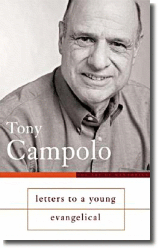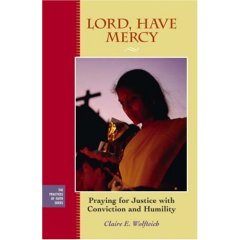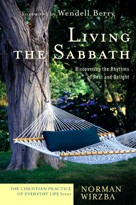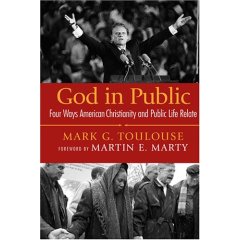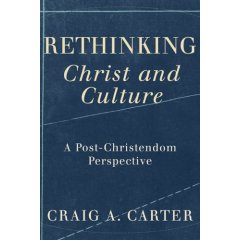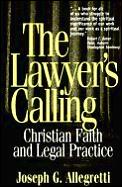It has been a while since I have published one of what used to be called my Monthly Review Article. How many months may one skip, and still be considered a regular franchise? As you may realize, I’ve been so busy blogging and doing smaller book reviews at the BookNotes blog that I’ve neglected this larger, monthly venue.
This collection of books, however, is large enough—and I would like to think, interesting enough—to publish here at the monthly column. Sorry it is so late. Let’s hope I get back to the monthly schedule in the New Year.
Sometimes I am asked quite specific questions (really, almost every day) that necessitate a bibliography custom made for the particular inquiry of the particular customer. I thought you might like to look over my shoulder (as I sometimes phrase it at the blog) while I answer a few inquiries. I’ll share two recent bibliographies below.
The first batch of books that I describe was for a good friend—a very thoughtful seminary professor. I believe he knows the best books for doing formation work for young ministers-in-training. I didn’t give him my list of the "must-read" essentials or the most classic texts, since that isn’t what he asked for. This is a slightly quirky, mostly brand new collection of titles that try to get at the ways in which clerical integrity takes shape. My customer had hoped for compilations of case studies of pastors. I did the best I could, given his needs and my mood. I thought you’d get a kick out of reading along.
Next, there is a somewhat similar list; a customer I respect was searching for books on preaching. Interestingly–again—he wasn’t looking necessarily for the best books, nor the starter texts, nor the standards. He was wondering over deeper questions, less how to construct a sermon and more the whats and whys of it all. I think the list I put together, quirky as it is, would shake loose a few things. I hope you find it interesting.
So, read along as I answer these two friends. If your favorite book isn’t listed, don’t fret. I could put that on another list. Drop us a note or call in to the shop. Nearly every list is custom designed, in a fashion I sometimes think of as literary performance art. We’d love to stay in touch about the important matters I address in the lists shown, or in any other matter that concerns you. Read on…
Dear______
…Well, I am not sure that there is any one book that is perfect for your use, not sure at all. Maybe you will have to design a "reader"—could be a good book idea!
Here are a few that have some case studies in them. The first are really the best, with good examples of pastoring. Further down there are a few that are collections of case studies of congregations (mostly emergent, or mainline, respectively) and some talk about the role of pastoral leadership.
Since I didn’t have many that are just what you wanted, I took this as an excuse to develop a list anyway. Maybe I’ll post it on the website and someone else may be intrigued, but I have enjoyed sharing a few of our recent good titles on pastoral leadership, clergy life and ministry with you. There are some standards I love (Peterson, Willimon, Dawn, etc.) and a few old chestnuts (Richard Baxter comes to mind) but these are all recent releases. Hope it stimulates your thoughts. Feel free to share this list if you have reason to, even as you recall that they aren’t all necessarily the most traditional, and they represent a pretty diverse gang of authors. I’m glad you are both open-minded and discerning about such things. We are grateful for these rich resources and hope you find them helpful. Thanks so much for being a firm reader, and for asking for our input. We are grateful.
Resurrecting Excellent: Shaping Faithful Christian Ministry L. Gregory Jones & Kevin Armstrong (Eerdmans) $15.00 This is in the "Pulpit & Pew" series and I would presume you have it. The reviews have been stellar and it is very nicely written; serious and weighty, yet joyful and heartening. It isn’t exactly "case studies" arranged one each chapter, but it has tons of research, stories of those who are excellent in the parish ministry. If you don’t have it, it is a must!
Travelers on the Journey: Pastors Talk About Their Lives and Commitments Mark D. Constantine (Eerdmans) $20.00 A few could quibble that these stories are all from the south, and not exactly conservative evangelicals. Still, these accounts of pastors who have made a difference not only in their local congregation but in the public stands for justice is fabulous. The clergy here are showcased as moral leaders and their stories are very well told. Excellent.
God’s Potters: Pastoral Leadership and the Shaping of Congregations Jackson Carroll Another book in the "Pulpit & Pew" series, this, again, isn’t exactly simple case studies. But it is research-based, studies of those pastoral practices that are effective in shaping congregations. There are tables and charts, this offers specific strategies for strengthening pastoral leadership. They say this explores what was the largest and most representative survey of Protestant and Catholic clergy every undertaken. Although it is Jackson’s reflections drawn from the data, he tells tons of stories and details what has been learned…
Faith of My Fathers Chris Seay (Zondervan) $16.99 A conversation between three generations of pastors about church, ministry and culture. Not every family has three generations of pastors, and, here, each is truly classic of their generation/type/approach. With a forward my Donald Miller, this is appealing to the emergent crowd, but the conversations which are recorded here really highlight the strengths and weaknesses and insights and blinders of these different men. Nice.
Backtalk! Women Leaders Changing the Church Susan Willhauck (Pilgrim Press) $21.00 This especially focuses on the growing voices of ethnic women within the mainline churches, even if not a compendium of case studies (sorry, there just aren’t that many such books.) I understand that the CRC will not look favorably upon many of these radical women and their voices, here, but it is a fascinating collection. You may know of a collection, too, one published by the Methodists, another by the Presbyterians, each celebrating the anniversary of the decision to ordain women. Each woman tells her story, and some are very gracious and joyful, and others tell of struggle and injustice. Each is useful, if you need such examples…
The Places You Go: Caring For Your Congregation Monday Through Saturday Urias Beverly (Abingdon) $17.00 Staring with the line from Dr. Seuss, this author shows case studies of a pastors various places of ministry, showing how pastoral work is often done in the context of homes, hospitals, long-term care institutions, funerals, jail visitations and, of course, in the pastor’s office. A nice arrangement of chapters, each on a different setting, which almost gives it a case-study feel.
Christianity for the Rest of Us: How the Neighborhood Church Is Transforming the Faith Diana Butler Bass (Harper) $23.95 I’m sure you’ve seen reviews of this, and may have noted my blog saying it may be the book of the year! Her well-told story about mainline churches with mainline theology that are, in fact, vibrant and robust, is a wonderful read! She walks you through her journey of various churches—I assume you know her own memoir about a handful of churches she was a part of, called Strength for the Journey, and this is somewhat like that, although that book really was a church per chapter. Here she has a "practice" per chapter, and tends to highlight a few churches, but often focusing on one, that embodies or exemplifies that particular practice. An important bit of research and celebration of the mainline congregations that are (re)discovering spiritual disciplines and faithful ways of doing the work of being church. You will be hearing a lot about this, I’m sure.
Practicing Congregations: Imagining a New Old Church Diana Butler Bass (Alban Institute) $17.00 This is actually pretty similar to the above book, although it is a smaller paperback, not written for a real popular level audience, and reads a bit more like the research piece it is. A fabulous introduction to her Pew funded work, studying the best congregations and the robust spiritual practices that helped bear the fruit of renewal. She co-edited a reader, then, which would be even better for you, where several key participants each tell their congregation’s story themselves. That important and useful collection is called From Nomads To Pilgrims: Stories from Practicing Congregations (Alban Institute; $18.00.) Really useful!
Inside the Organic Church: Learning from 12 Emerging Congregations Bob Whitesel (Abingdon) $18.00 Not a set of case studies of clergy person’s work, but it is a set of case-studies of various congregations. Good examples of innovative churches, with a perceptive analysis of each.
Under the Rader: Learning From Risk-Taking Churches Bill Easum & Bill Tenny-Brittian (Abingdon) $14.00 Church growth and congregational development folks tend to love the energetic and visionary Easum. Here, he gives a tour of a handful of nontraditional churches.
Practitioners: Voices Within the Emerging Church Edited by Greg Russinger & Alex Field (Regal) $14.99 A cool looking little book with real, passionate (at times arrogant and scathing, one reviewer says) voices of real emergent pastors/leaders. This shows what, in fact, they are really doing. Fascinating.
The Relevant Church: A New Vision for Communities of Faith Edited by Jennifer Ashely et al (Relevant Books) $12.99 Fifteen stories of various congregations, some quite outside the bounds of tradition, most "emergent" and what they are doing…
HERE ARE A FEW MORE THAT AREN’T EVEN CLOSE TO BEING CASE STUDIES, BUT SINCE I’M WRITING, CAN”T RESIST TELLING YOU ABOUT THEM.
We Have This Ministry: The Heart of the Pastor’s Vocation Samuel Proctor & Gardner Taylor (Judson) $15.00 Two of the most eloquent African American preachers and pastors here offer a handful of chapters, with each chapter on one particular trait. Because it is arranged with such clarity, it almost feels like case studies although that isn’t the approach, actually. I think it is a useful presentation; looks at preaching, teaching, praying, visiting, counseling, administration and such"with good stories and examples (although not enough to suit your needs, I’m afraid.)
The Pastor: A Spirituality Gordon Lathrop (Fortress) $20.00 Again, not a set of case studies at all, but Lathrop’s vision is so nicely written and his insight so helpful (you know he is a highly liturgical Lutheran) that I just had to include it here. It is very moving and, I think, enduring.
Letters to New Pastors Michael Jenkins (Eerdmans) $15.00 I’ve told a few folks not to let the chatty style (and the bright red mail box on the cover) throw you: this is awesome, important, wise counsel from a seasoned pastor. Jinkins is the academic dean and prof of pastoral theology at Austin Presbyterian Theo. Really nice stuff!
God’s Pattern: Shaping Our Worship, Ministry and Life David Stancliffe, Bishop of Salisbury, England (SPCK) $24.00 I must admit I haven’t read this, although it deeps attracting me. Rowan Williams says in the forward "This enormously readable and attractive book offers new perspectives on all sorts of things, from the importance of singing to the theology of ordained ministry…We are introduced into a wonderfully large and abundant world. Here is Christian faith and practice presented not as a scheme or rule to follow but as, simply, life in the new creation." Sounds good, eh? His four-fold pattern (drawn from the story of Emmaus, by the way, is engaging, attending, transforming, and energizing.)
The Spirit-filled Leader: Nine Leadership Practices and Soul Principles Timothy Geoffrion (Alban Institute) $18.00 One friend says it is one of the best books on leadership he has ever read. A very important contribution to integrating personal faith and spirituality into corporate leadership.
Leading a Life with God: The Practice of Spiritual Leadership Daniel Wolpert (Upper Room Books) $17.00 With all the amazingly good books on spiritual formation, I am reluctant to mention another. Still, this is specifically for leaders and offers a penetrating glimpse into some of the church’s biggest needs—spiritual leadership offers by deeply disciplines leaders. Nicely done.
Ministry in the Image of God: The Trinitarian Shape of Christian Service Stephen Seamands (IVP) $13.00 The title says it all, and with blurbs on the back from the likes of David Hansen (I know you like his book The Art of Pastoring) and Larry Crabb, this is a soul-enriching and adept theological basis for ministry.
A Generous Presence: Spiritual Leadership and the Art of Coaching Rochelle Melander (The Alban Institute) $22.00 Bigger than most Alban Institute studies, this is a wonderful reflective guide to mentoring, leading, directing…there is nothing quite like this out there and we are happy to promote it.
Leadership for Vital Congregations Anthony B. Robinson (Pilgrim Press) $12.00 Tony is a friend, a respected mainline church leader and a great writer. I am not sure this is extraordinarily new stuff, but it is clear, concise, readable and the first in a new series called "Congregational Vitality" being done by the UCC. If this is an indication of the tone and perspective, we can be thankful to God.
* * *
And here, as I said above, is another list I had prepared for a customer’s inquiry. Again, it was written for a theologically solid and thoughtful evangelical friend. (See my description above to hear about his particular inquiry.) What follows isn’t a listing of the classics, standards or best books on homiletics, but a unique list that I thought he’d find useful and provocative. Perhaps you will too. Enjoy!
Dear_____,
…thanks for writing. You’ve certainly asked one of the most provocative questions of the month (and I’ve had some dooseys!) I am honored that you and your friend asked, and, to be honest, it is a topic I have great interest in. For some odd reasons–perhaps because as a lay person I do some preaching—I really enjoy reading homiletics books. And I’ve sat in some wonderful workshops for preachers. It is a very strong part of our store, but (oddly, and a bit sadly, I think) hardly anybody buys “Ëœem. Like marriage books, say—I know some tender books that could really help people, but not too many people are willing to work through even a nicely written, thoughtful book, even if they need the help. I guess they just plod on somehow. Ditto with most preachers…
Recently at a pastors conference I plugged a book (during these little pitches I get to give as book announcements during the conference) called The Fully Alive Preacher: Recovering from Homiletical Burnout by Mike Graves (WJK;17.95.) It isn’t a book about how to construct a sermon, but how to find courage and inner strength, wisdom and fidelity to stand up week after week after week. Barbara Brown Taylor wrote a splendid forward. It is as much about finding stamina and creativity in a preacher’s spiritual formation and passion for the Word as much as anything, and I thought it would resonate with this group of exhausted clergy. Didn’t sell too many, though…oh well.
So, this is a tricky one, this question about preaching. We have dozens of good books on preaching, even on certain topics (preaching about social justice, preaching the parables to postmoderns, finding Christ in the Old Testament texts, preaching about suffering, preaching to women, preaching during times of congregational change, etc. etc.) But I know this isn’t what you want. So here is a list of some that might be, as Bruggemann might say, generative. Let’s hope so.
So: here are a few about preaching that are more than sermon construction or delivery. (The question of the role of the sermon in the context of worship is another whole topic, and I might find stuff on that later.) Let me know what you think.
Proclamation and Theology William Willimon (Abindgon) $9.00 The first in a series of brief, dense books (Horizons in Theology; the second is on philosophy and theology) that are designed to raise basic theological questions. Here, the question is how does theology and preaching intersect. Drawing from classical theology and personal, practical experience, Wilimon does a very nice job. It may be that this is a more streamlined version of some of what he does in his large and important book Conversations With Barth on Preaching (Abingdon; $20.00) that came out earlier this year. A tour de force! One reviewer said it was Will’s most important work. Whew.
The Supremacy of God in Preaching John Piper (Baker) $9.95 It doesn’t get much more clear than this: Piper insists that the glory of God is at stake as people are challenged by the demands of Scripture to savor the sweetness of Jesus. This passionate call to make the preaching of the gospel the primary task of preachers is noble, thoughtful and includes very practical guidance.
The End of Words: The Language of Reconciliation in a Culture of Violence Richard Lisher (Eerdmans) $18.00 In a blog post a year ago (or maybe on the website) I noted that this has become one of my all time favorite books. I couldn’t put it down, this thoughtful, meandering reflection on the power of words, the gospel of reconciliation, and whether speaking these frail breathy things called words can really make a difference in our weighty, broken world. What a marvelous book!
Graceful Speech: An Invitation to Preaching Lucy Lind Hogan (WJK) $24.95 Hogan teaches at Wesley Theological Seminary in DC and I’m told that, as an ordained Episcopal priest, she is a marvelous preacher. This helps the reader understand the theological task of becoming a preacher, crafting the writing of sermons (yes, a bit on that) and the importance of communicating the gospel in the contemporary world. I am each to explore her rationale for preaching, and her stuff on the identity of the preacher.
Birthing the Semon: Woman Preachers on the Creative Process Jana Childers, editor (Chalice Press) $26.99 This may be the biggest selling book we’ve had on preaching, because I tell so many folks about it. Here, you have women preachers reflecting on the question of being a woman has shaped how they do their preaching work. Some talk about their preparation (BBT is worth the price of the book, here) they are really different! (One black woman talks of doing her sermon prep all night Saturday night, preaching Sunday morning after this all night vigil.) Some are very, very clear that their being a woman, or mother, has influenced their exegesis and homiletics; other aren’t as sure. Some make a big deal about being a woman (wearing sexy shoes, say, and allowing their hair to flow, just so listeners know while others say that some parishioners have enough difficulty with women in the pulpit, they don’t want to add to their distraction.) So, this is very practical, very interesting, and a real inspiration to hear so many different preachers reflect on the details of their calling and craft.
Voicing the Vision: Imagination and Prophetic Preaching Linda Clader (Morehouse) $16.95 Brueggemann has insisted that imagination and prophetic utterance go together (see, for instance The Prophetic Imagination or any of his books on preaching) and this seasoned professor of preaching picks up on this in a marvelous reflection on the power of grace-filled, prophetic preaching. I really appreciate much of this very creative, important work.
Playing With Fire: Preaching Work as Kindling Art David Schlafer (Cowley) $16.95 David has guided hosts of Episcopalian preacher into deepening their craft, and he’s well-read, thoughtful, faithful and, here, has written his best book yet. These metaphors of fire and playfulness come through, making this a powerful, fun book.
Envisioning the Word: The Use of Visual Images in Preaching Richard A. Jensen (Fortress) $20.00 (includes a CD rom) Here, a thoughtful theologian ponders the recent debates about word and image, and gives a balanced and nuanced argument for preaching thoughtful and well with image, blending sound and sight. It is on one hand a one-volume resource kit, but it is also a very thoughtful apologetic for wholistic preaching. Very nicely done, with a pleasant mix of theory and practice, pondering and helpful (if highly liturgical) images on the CD.
Preaching as Local Theology and Folk Art Leonora Tubbs Tisdale (Fortress) $18.00 I love this book because–as you said, your friend may not need practical guidance on exegeting the Bible or learning the art of quality communication. This, though, offers guidelines for how to exegete the congregation. Tisdale is an experienced pastor and a thoughtful social critic, so she understands congregational dynamics, the local "dances" that local folk do, and insists that good pastors, and good preachers, join in the local customs, preaching a (contextualized) local theology that resonates with the best folkways and mores of the community. That there is an operative theology is a wise insight. That preaching both enters into and helps shape this worldview and operative theology is a great contribution.
The Round-Table Pulpit: Where Leadership and Preaching Meet John McClure (Abindgon) $15.00 This is a good approach to the weekly task of preaching where collaboration is used, rejecting the preacher-led style and inviting local small groups to inform the sermon prep. This is rather related to a feminist hermeneutic and may be a less dramatic version of Sharing the Word: Preaching the Roundtable Church by Lucy Atkinson Rose (WJK; $17.)
Preaching Re-Imagined: The Role of the Sermon in Communities of Faith Doug Pagitt (Zondervan) $18.99 I rather like old-style, expository preaching, yet I am feminist and postmodern enough to really find the hermeneutics of Tisdale and Rose appealing. Here is a book that pushes all this, coming from a rather different angle, that of the hipster emergent conversations. Pagitt is a hoot, and this book is fabulous. I don’t know if he’s right, but it is interesting and fun and a good part of how to reconsider this stuff these days. Highly recommended.
Purpose of Preaching edited by Jana Childers (Chalice) $21.99 Although most of these contributors are not evangelically-minded, and include a variety of philosophical and theological perspective, this is a truly fascinating volume of various preachers and teachers weighing in on the question of what preaching is for. Many of the chapters have the authors sharing their own journey and new learnings…nicely done, and a nice one-volume collection of recent scholars and their work.
Where Have All The Prophets Gone? Reclaiming Propehetic Preaching In America Marvin A. McMickle (Pilgrim Press) $22.00 I am very eager to spend some time with this new book written by a well-respected African American pastor. Not every homiletics book challenges us to take seriously the work of King, Kozol, and Cornell West. And he quotes Chuck Colson.
Preaching and Worship Thomas Troeger (Chalice) $19.99 This little book is a very important contribution by a very important theologian of preaching and worship. As with his worth work, he offers keen insights about the multi-sensual experience of worship and ways to proclaim the gospel within the setting of deep and richly creative worship.
Preaching at the Double Feast: Homiletics for Eucharistic Worship Michael Monshau, editor (Liturgical Press) $21.95 Not everyone knows this richly Catholic phrase about the rites of Word and Eucharist. This is a collection of important Roman Catholic scholars offering insights into eucharistic worship and the proper role of preaching, and preparation for preaching at full liturgical services. Very nicely done.
The Preacher’s Portrait John Stott (Eerdmans) $8.00 This is one of John Stott’s very early books and it is hard to do any kind of list on preaching without noting it. This is a fabulous and very clear, yet very moving study of what the Bible says about ministry, and the importance of the preacher and preaching. Highly recommended.
A Mirror for the Church: Preaching in the First Five Centuries David Dunn-Wilson (Eerdmans) $22.00 When I saw Duke Divinity School’s William Turner’s endorsement (he calls it a "priceless insight") and knew this would be special. H&M friend Bill Edgar from Westminister next called it a "feast." Another reviewer insists it is the best of it’s kind, "precise yet not pedantic." I would guess this is pretty important, and may be a good one to end on.
Let us know if you’d like to chat further, or if any of these seem helpful. It would be our pleasure to stay in touch, or ship some books. Let’s pray that these good resources find their homes in the libraries and hearts of preachers who need to take their task with some renewed vigor and thoughtfulness. Thanks.
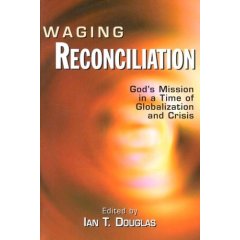
 But read the back jacket blurbs, composed by some of the most vital theologians in the world today:
But read the back jacket blurbs, composed by some of the most vital theologians in the world today:
